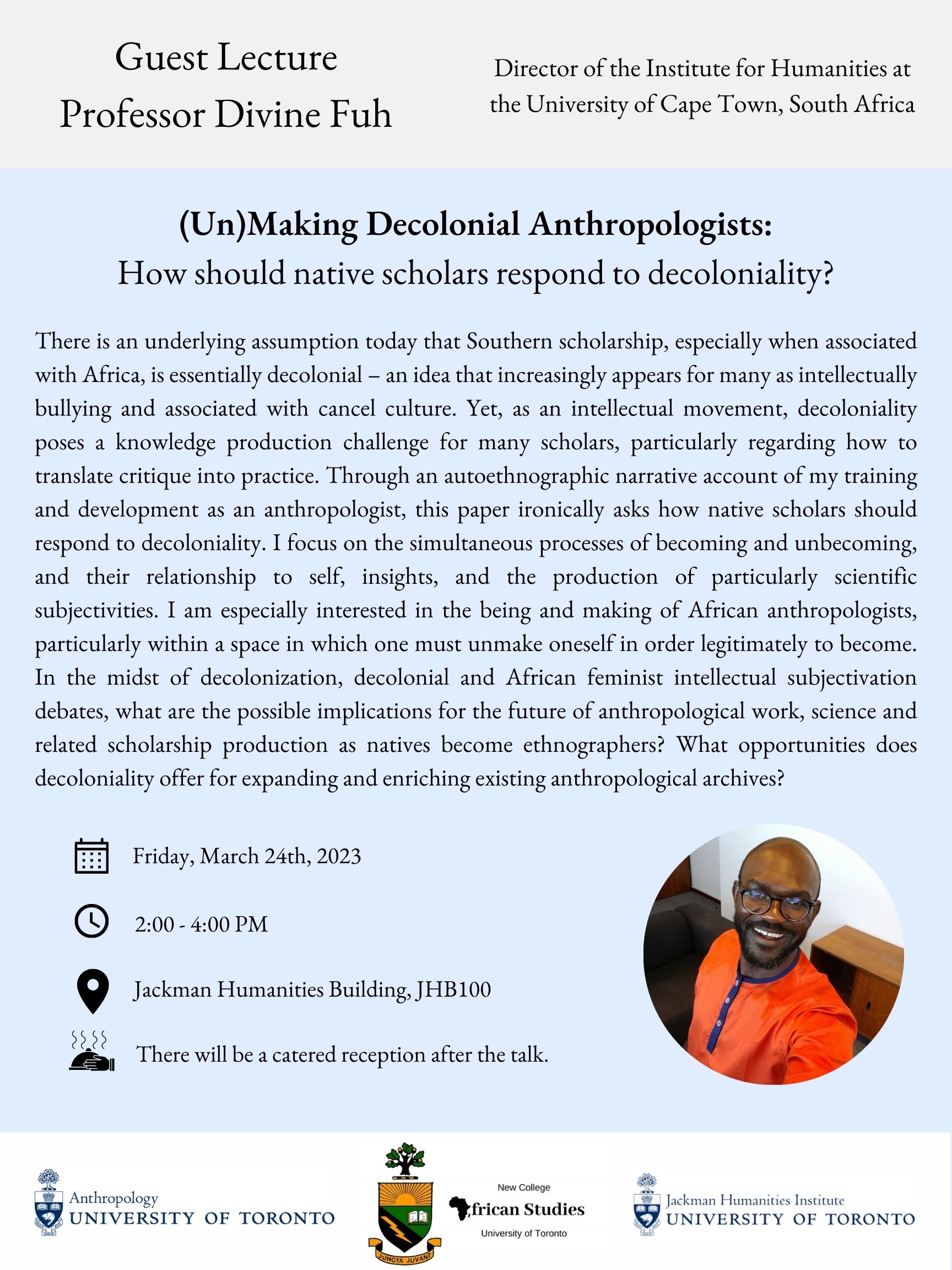Guest Lecture: Divine Fuh "(Un)Making Decolonial Anthropologists: How should native scholars respond to decoloniality?"
When and Where
Description

The Department of Anthropology is excited to present a Guest Lecture by Professor Divine Fuh on Friday March 24th 2023 from 2:00PM–4:00PM in the Jackman Humanities Building, Room JHB100.
Professor Fuh is a social anthropologist from Cameroon and the Director of the Institute for Humanities at the University of Cape Town, South Africa.
His lecture is titled “(Un)Making Decolonial Anthropologists: how should native scholars respond to decoloniality?”
About the lecture, Fuh writes, "There is an underlying assumption today that Southern scholarship, especially when associated with Africa, is essentially decolonial – an idea that increasingly appears for many as intellectually bullying and associated with cancel culture. Yet, as an intellectual movement, decoloniality poses a knowledge production challenge for many scholars, particularly regarding how to translate critique into practice. Through an autoethnographic narrative account of my training and development as an anthropologist, this paper ironically asks how native scholars should respond to decoloniality. I focus on the simultaneous processes of becoming and unbecoming, and their relationship to self, insights, and the production of particularly scientific subjectivities. I am especially interested in the being and making of African anthropologists, particularly within a space in which one must unmake oneself in order legitimately to become. In the midst of decolonization, decolonial and African feminist intellectual subjectivation debates, what are the possible implications for the future of anthropological work, science and related scholarship production as natives become ethnographers? What opportunities does decoloniality offer for expanding and enriching existing anthropological archives?"
We hope you will join us for Professor Fuh's lecture and for a catered reception following the talk.
The lecture is sponsored by the Department of Anthropology, New College's program in African Studies, and the Jackman Humanities Institute.


